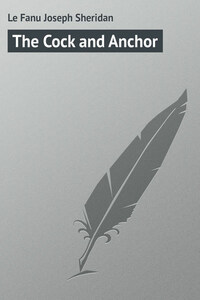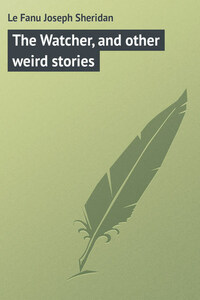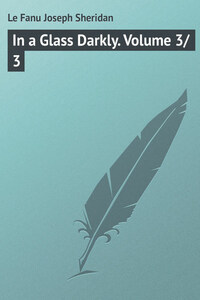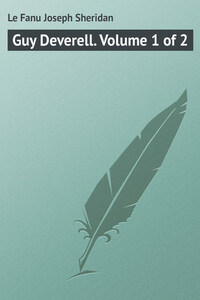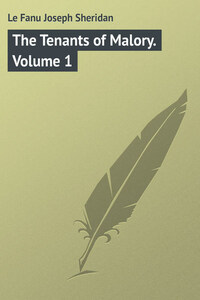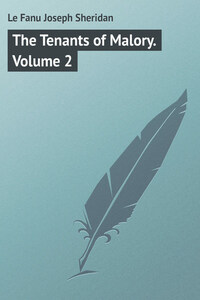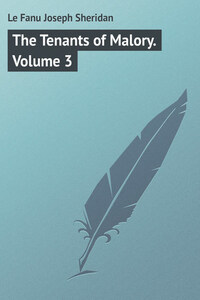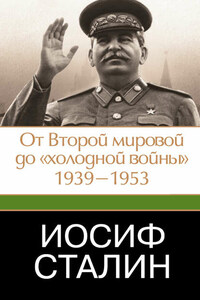CHAPTER I
THE "COCK AND ANCHOR" – TWO HORSEMEN – AND A SUPPER BY THE INN FIRE
Some time within the first ten years of the last century, there stood in the fair city of Dublin, and in one of those sinuous and narrow streets which lay in the immediate vicinity of the Castle, a goodly and capacious hostelry, snug and sound, and withal carrying in its aspect something staid and aristocratic, and perhaps in nowise the less comfortable that it was rated, in point of fashion, somewhat obsolete. Its structure was quaint and antique; so much so, that had its counterpart presented itself within the precincts of "the Borough," it might fairly have passed itself off for the genuine old Tabard of Geoffry Chaucer.
The front of the building, facing the street, rested upon a row of massive wooden blocks, set endwise, at intervals of some six or eight feet, and running parallel at about the same distance, to the wall of the lower story of the house, thus forming a kind of rude cloister or open corridor, running the whole length of the building.
The spaces between these rude pillars were, by a light frame-work of timber, converted into a succession of arches; and by an application of the same ornamental process, the ceiling of this extended porch was made to carry a clumsy but not unpicturesque imitation of groining. Upon this open-work of timber, as we have already said, rested the second story of the building; protruding beyond which again, and supported upon beams whose projecting ends were carved into the semblance of heads hideous as the fantastic monsters of heraldry, arose the third story, presenting a series of tall and fancifully-shaped gables, decorated, like the rest of the building, with an abundance of grotesque timber-work. A wide passage, opening under the corridor which we have described, gave admission into the inn-yard, surrounded partly by the building itself, and partly by the stables and other offices connected with it. Viewed from a little distance, the old fabric presented by no means an unsightly or ungraceful aspect: on the contrary, its very irregularities and antiquity, however in reality objectionable, gave to it an air of comfort and almost of dignity to which many of its more pretending and modern competitors might in vain have aspired. Whether it was, that from the first the substantial fabric had asserted a conscious superiority over all the minor tenements which surrounded it, or that they in modest deference had gradually conceded to it the prominence which it deserved – whether, in short, it had always stood foremost, or that the street had slightly altered its course and gradually receded, leaving it behind, an immemorial and immovable landmark by which to measure the encroachments of ages – certain it is, that at the time we speak of, the sturdy hostelry stood many feet in advance of the line of houses which flanked it on either side, narrowing the street with a most aristocratic indifference to the comforts of the pedestrian public, thus forced to shift for life and limb, as best they might, among the vehicles and horses which then thronged the city streets – no doubt, too, often by the very difficulties which it presented, entrapping the over-cautious passenger, who preferred entering the harbour which its hospitable and capacious doorway offered, to encountering all the perils involved in doubling the point.
Such as we have attempted to describe it, the old building stood more than a century since; and when the level sunbeams at eventide glinted brightly on its thousand miniature window panes, and upon the broad hanging panel, which bore, in the brightest hues and richest gilding, the portraiture of a Cock and Anchor; and when the warm, discoloured glow of sunset touched the time-worn front of the old building with a rich and cheery blush, even the most fastidious would have allowed that the object was no unpleasing one.
A dark autumnal night had closed over the old city of Dublin, and the wind was blustering in hoarse gusts through the crowded chimney-stacks – careening desolately through the dim streets, and occasionally whirling some loose tile or fragment of plaster from the house tops. The streets were silent and deserted, except when occasionally traversed by some great man's carriage, thundering and clattering along the broken pavement, and by its passing glare and rattle making the succeeding darkness and silence but the more dreary. None stirred abroad who could avoid it; and with the exception of such rare interruptions as we have mentioned, the storm and darkness held undisputed possession of the city. Upon this ungenial night, and somewhat past the hour of ten, a well-mounted traveller rode into the narrow and sheltered yard of the "Cock and Anchor;" and having bestowed upon the groom who took the bridle of his steed such minute and anxious directions as betokened a kind and knightly tenderness for the comforts of his good beast, he forthwith entered the public room of the inn – a large and comfortable chamber, having at the far end a huge hearth overspanned by a broad and lofty mantelpiece of stone, and now sending forth a warm and ruddy glow, which penetrated in genial streams to every recess and corner of the room, tinging the dark wainscoting of the walls, glinting red and brightly upon the burnished tankards and flagons with which the cupboard was laden, and playing cheerily over the massive beams which traversed the ceiling. Groups of men, variously occupied and variously composed, embracing all the usual company of a well frequented city tavern – from the staid and sober man of business, who smokes his pipe in peace, to the loud disputatious, half-tipsy town idler, who calls for more flagons than he can well reckon, and then quarrels with mine host about the shot – were disposed, some singly, others in social clusters, in cosy and luxurious ease at the stout oak tables which occupied the expansive chamber. Among these the stranger passed leisurely to a vacant table in the neighbourhood of the good fire, and seating himself thereat, doffed his hat and cloak, thereby exhibiting a finely proportioned and graceful figure, and a face of singular nobleness and beauty. He might have seen some thirty summers – perhaps less – but his dark and expressive features bore a character of resolution and melancholy which seemed to tell of more griefs and perils overpast than men so young in the world can generally count.
